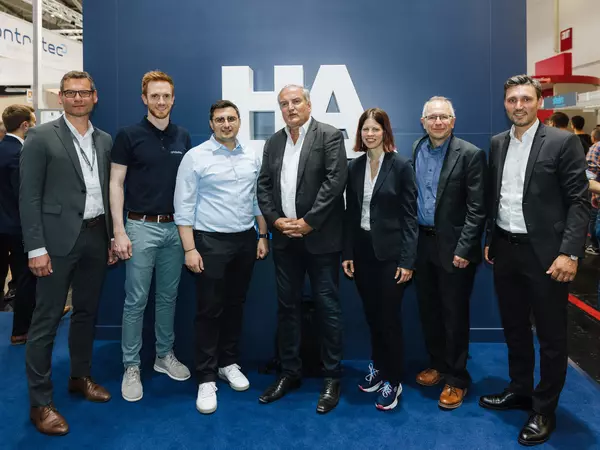


However, in order to bring automation technology to a wider audience, suppliers must also increasingly think in terms of modules and ready-made building blocks. SCHUNK COO Johannes Ketterer cites one example: "We offer standardized software modules with open interfaces so that our components can be easily integrated into the robot. This allows them to be made available as application packages to integrators and end customers quickly and easily."
However, to ensure that this modular thinking also works technically, standardized interfaces are necessary, emphasizes Thomas Retzlaff, Vice President responsible for Partner Development and Ecosystems at Wandelbots. He points to similar developments in the IT industry. "Standardization makes processes simpler and components more interchangeable. As a result, the initial price hurdle is dropping for the most part as well." In Retzlaff's view, value creation in robotics is therefore increasingly shifting from hardware to software. Milicevic compares this development to the plug-and-play concept now common with PCs. "Robotics and automation are still a long way from such open interfaces and widespread compatibility, but it's clearly where the journey is heading."
However, in order to quickly meet increasing customer demand, it is not only open interfaces and modular building blocks that are needed, but also partnership-oriented thinking, emphasizes SCHUNK's COO Ketterer. "Because partnership-oriented thinking leads to a completely different speed and is therefore currently taking place much more than five or six years ago. We have to focus more on our core competence in order to meet the huge demand." The fact that this strategic partnership orientation is enormously important for SCHUNK is also underlined by our new company claim "Hand-in-hand for tomorrow".
For Brockmann, the ability to cooperate is also crucial because "process chains today are long and complex, so that hardly anyone can master all the process steps on their own. We therefore need to think more in terms of partnerships along the process chain in order to be able to map each individual process step optimally." But this is also an opportunity for the numerous small players from Germany, who often have a better command of their technology segment than others.
This thinking in terms of building blocks and standardized interfaces ultimately also creates the basis for platforms and ecosystems, which result in entirely new disruptive opportunities, points out Retzlaff. "Because in the platform economy, business contacts don't grow linearly, but exponentially. With this you have the chance to introduce your product to a much larger groups of potential users."
But for customers in particular, as we know them from our private lives with Airbnb or Booking.com, such platforms bring plenty of advantages. "Platforms speed up the process as a whole because they convey remote knowledge to the surface and bring all partners together in one marketplace," says Ketterer. In addition, platforms like robotics platforms show which solutions have already been implemented in practice, thus stimulating demand from other customers.
However, there remains the question of what will happen to special machine builders and robotics system integrators if solutions can be put together quickly and easily in the future using the modular principle? Will they be the losers in this change? ABB expert Katja Butterweck does not believe that traditional integrators and special machine builders will disappear. "The market is so huge that these will stay. But in addition, entirely new integrators who succeed in bringing the standardized modules together will emerge."
Retzlaff also expects the number of integrators to increase significantly over the next ten years. "However, the overall level of integration will decrease due to standardization." Engelbrecht assumes that the future will not entail complex individual special systems that fulfill 99.5% of all requirements. Instead, these expensive, customized solutions are being replaced by 90% solutions that can be easily assembled from modular building blocks.
This ought to be good news for customers because in current projects, engineering costs make up a significant portion. Ketterer is therefore convinced that there will be "strong growth in automation over the next four to five years, because standardized and modularized applications will enable us to bring solutions to end customers much more quickly. Especially since the whole industry has been moving at speeds in the last two or three years that we haven't seen in 10 to 15 years before that. There's a awful lot that's already on the right track."